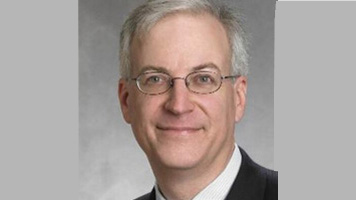Jessell | The Education Of Mark Zuckerberg


Harry Jessell
It’s been a joy watching Facebook’s Mark Zuckerberg grow up as a billionaire media mogul over these past few years.
First he learned, as the original web master Peter Parker did, that with great power comes great responsibility. You just can’t write some computer code, set it on auto pilot and rake in the dough.
Whether he likes it or not, he found out that he is responsible to some extent for the malicious and ugly content that flows through Facebook, and for the personal information that users carelessly leave behind. A series of missteps have transformed him from high-tech hero to high-tech villain.
He has responded by reluctantly assuming the role of publisher or broadcaster, hiring some people to police what is posted and others to secure and manage all that collected personal data.
It’s wasn’t enough. The once bright light of Facebook continued to fade.
But now I see he has learned another lesson: government regulation may not be the problem; it may be the solution.
In a much talked about March 30 op-ed in The Washington Post, Zuckerberg invited regulation of Facebook, specifically of “harmful content,” political advertising, privacy and data portability.
“I believe we need a more active role for governments and regulators. By updating the rules for the Internet, we can preserve what’s best about it — the freedom for people to express themselves and for entrepreneurs to build new things — while also protecting society from broader harms.”
After 15 years of living on the wild, anything-goes internet frontier, Zuckerberg wants a sheriff to bring some law and order to town.
I’m just surprised that it took him so long, but, then again, he is only 34 and still learning the ways of the media world.
From following broadcasting over the past 40 years, I have long understood that regulations can benefit media companies, even as they also restrained the businesses and imposed stiff compliance costs.
The trick, of course, is to regulate the regulations — retaining and enhancing the good ones and eliminating and mitigating the harmful ones. The NAB and reps for individual companies are expert at this.
Good regulations are ones that relieve companies of liabilities, shield them from political pressure, ward off competitors and govern business relationships with competitors.
TV broadcasters once enjoyed a whole heap of laws and regulations that helped keep cable at bay for decades and allowed them to maintain their TV oligopoly far longer than they probably should have.
In the 1970s cable was able to persuade Congress and the FCC that many of the rules were anticompetitive. When they came off, cable took off. Ted Turner once said he got the idea for superstation WTBS from reading about the FCC relaxation of the distant signal rules.
However, broadcasters managed to hang on to must carry and create a whole regulatory regime around retransmission consent. The former guarantees weak stations carriage on cable system; the latter provides a framework that strong stations can use to extract payments from MVPDs that carry their stations.
Broadcasters have also worked hard to preserve other regulations that strengthen their hand in retrans negotiations, namely the syndicated exclusivity and network non-duplication rules.
While some broadcasters object to the FCC’s national and local ownership limits, others see them as a way to maintain the competitive balance among stations in markets and to keep a few super groups from dominating the lesser ones.
Congress and the FCC have gradually relaxed ownership restrictions over the years, but significant limits remain in place partly because of resistance from some broadcasters.
Another example of how regulations benefit broadcasters is the FCC’s political advertising rules.
Every two years, broadcasters fill their airwaves will high-priced political spots without having to worry about whether the spots are true, libelous or indecent. That’s because regulations say they cannot censor or alter the spots of candidates.
Political is a critical source of revenue for stations. In 2018, candidates and their supporters dumped around $3 billion into station coffers. Imagine if broadcasters had to vet closely every ad that came in the door in the heated weeks before an election.
And what do the broadcasters have to do for this regulatory relief? Not much. For the most part, they have to find time for all federal candidates and not discriminate in accepting spots from non-federal candidates. In other words, the rules say broadcaster shouldn’t turn away any customers. That doesn’t seem onerous to me.
To some, Zuckerberg’s call for regulation may seem counterintuitive. Why would a leading businessman in a heretofore lightly regulated industry want bureaucrats telling him what to do?
Because he needs help. Right now, Facebook is overwhelmed by the sheer volume of content pouring in from 2.7 billion users and by the complications that have arisen surrounding political advertising and privacy. It’s put the company under tremendous political pressure and produced a PR nightmare.
Carefully written regulations could considerably narrow Facebook’s liabilities and help it manage the content and advertising by setting clear standards of what’s permissible and what’s not. If things go bad, a regulated Facebook can dodge responsibility by saying it was following all the rules.
If Zuckerberg needs a model for his regulate-me effort, he needs look no further than the original electronic medium — broadcasting. It’s been heavily regulated from Day One. And although the regulations have shaped the medium in countless ways, they have also allowed it to grow and prosper.
Harry A. Jessell is editor of TVNewsCheck. He can be contacted at 973-701-1067 or here.

































Comments (1)
NowACurmudgeon says:
April 8, 2019 at 7:09 pm
Zuckerberg is not a young child searching for limits from his parents. He is an adult and therefore should be setting his own and his companies limits. Don’t look to Big Daddy for guidelines. He is just looking to tell customers complaining about filters ‘It is not FB. It is the evil government’.